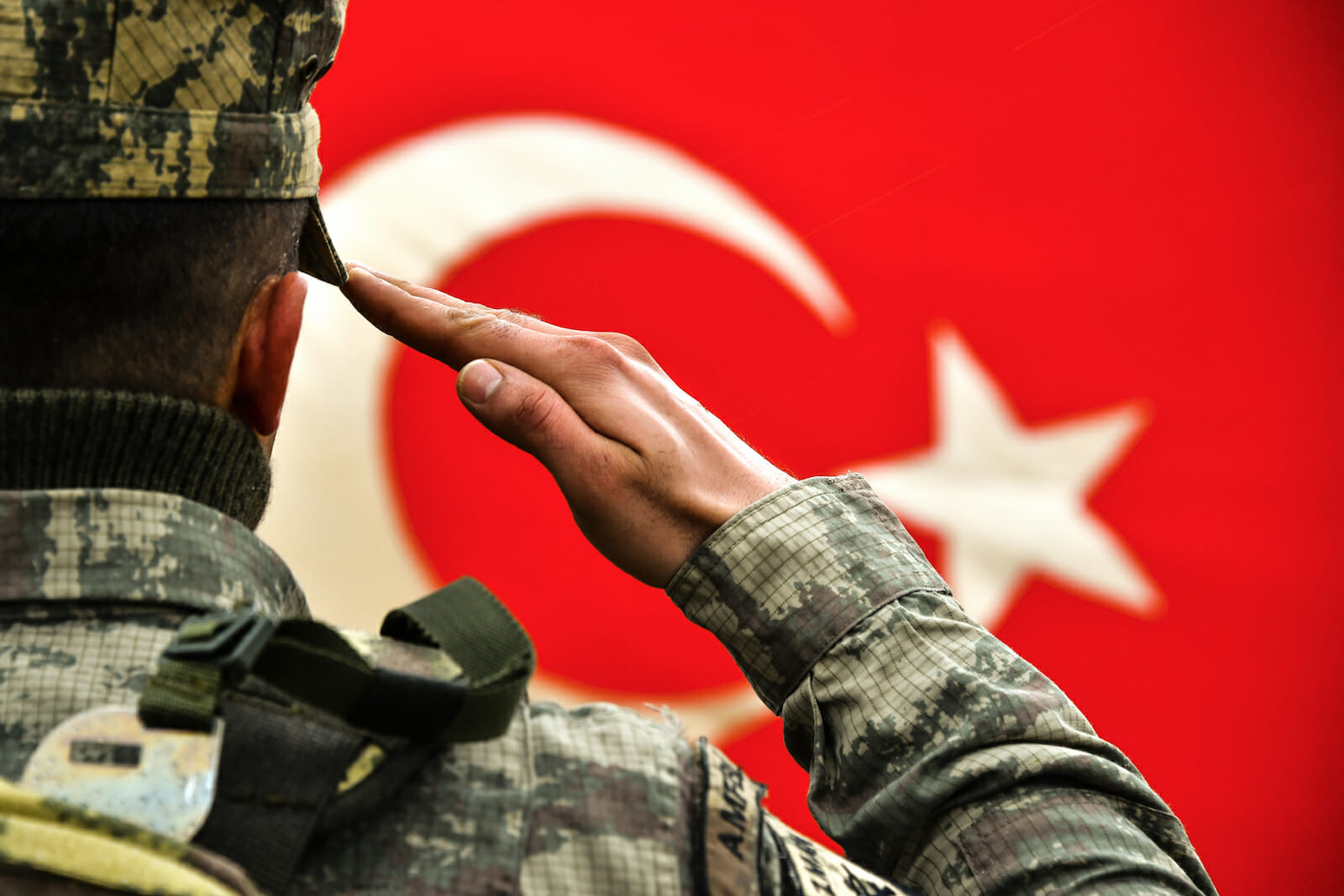
Eastern Mediterranean Tensions Continue to Simmer
The dispute over natural gas fields recently discovered in the Eastern Mediterranean and off the southern part of Cyprus continues to cause friction between several NATO allies. Turkey is demanding its fair share of the riches recently discovered and is finding itself confronted by not only Greece but by the French and Italian navies as well. The friction has created enough tension that Germany has become involved in trying to find common ground in an effort to avoid open conflict.
Ever since the abundant natural gas fields, one of which is named the Aphrodite natural gas field, was discovered off the southern coast of Cyprus there has been friction between the Mediterranean states that share a coastline with the finds.
The Aphrodite field is flush up against the Israeli Exclusive Economic Zone (EEZ), and the Israeli Yishai natural gas field is close to the Aphrodite field. So close in fact that Israel is demanding 5% of the output of the Aphrodite field. The Leviathan gas field, while close to Cyprus, falls into the EEZ of Israel. The Zohr natural gas field falls within the Egyptian Exclusive Economic Zone. The real friction are the actions of Turkey and the Turkish Navy. Turkey has sent survey ships into the area that Greece and Cyprus have claimed as their own EEZ as established by the Seville Map.
The Reason for Turkey’s Discontent
The root cause of Turkey’s discontent is the drawing of Exclusive Economic Zones according to the Seville Map which was commissioned by the European Union in the early 2000s. The European Union chose the University of Seville to determine the maritime boundaries of Greece, Cyprus, and Turkey in the Eastern Mediterranean. The University of Seville made the decision to measure the Greek maritime boundaries and establish Greece’s EEZ by drawing lines from every inhabited Greek and Cypriot island at the expense of what Turkey claims is a violation of its EEZ rights.
Under the UN Law of the Sea (UNCLOS), Turkey and UNCLOS case law, Turkey is probably entitled to a much larger share of the Eastern Mediterranean and some of the natural gas fields than the Seville Map allows. If Turkey were a signatory to UNCLOS, it would have a legal remedy to challenge the Seville Map and would likely prevail. However, Turkey is not a signatory to UNCLOS and cannot bring a case against Greece or Cyprus.
While Turkey had participated in the discussions of UNCLOS, it did not sign the treaty because it objected to the refusal of Greece to compromise as to the “width of territorial waters,” which was not resolved to Turkey’s satisfaction.
In light of Turkey’s inability to bring a legal case against the Seville Map, Turkey has opted to use military force to enforce its claims to the territorial waters it regards as its own. To further complicate the issue, Turkey has become involved in the Libyan Civil War on the side of the Government of National Accord (GNA) which is recognized by the United Nations as the legitimate government of Libya.
Why Turkey Became Involved in the Libyan Civil War
In order to strengthen its claims to the natural gas fields in the Eastern Mediterranean, Turkey decided to back the GNA with troops to oppose the rebel groups backed by the UAE and Egypt. Becoming involved in Libya enabled Turkey to gain influence with the GNA and to obtain a disputed EEZ agreement between Turkey and Libya.
Turkey and Libya have come to an agreement where the GNA and Turkey would merge their EEZs, creating the first transnational EEZ. The agreement provides for a 200 mile EEZ for both countries that overlap, and an 18.6-mile sovereignty zone off each countries continental shelf.
The foreign ministers for Greece, France, the UAE, and Cyprus have denounced the agreement between Turkey and Libya’s GNA. On May 11, the group released a statement denouncing the illegal activities of Turkey in violating the EEZ of Cyprus.
Turkey is pushing into the Eastern Mediterranean using the phrase “Mavi Matan” or “Blue Homeland.” Turkey, under Recep Tayyip Erdogan, has followed a political doctrine of “neo-Ottomanism,” seeking to regain the power, influence, and glory of the old Ottoman Empire.
Naval Confrontation in the Eastern Mediterranean
The current tensions between Turkey and Greece began when Turkey announced extending the mission of the Oruc Reis survey vessel which was accompanied by the Turkish Navy. Turkey declared its intentions by issuing a NAVTEX message. Greece immediately responded with its own NAVTEX message and began naval exercises in the areas contested by Turkey. As tensions have increased between Greece and Italy, naval vessels from Italy and France joined the Greek naval exercises.
Germany has been attempting to de-escalate the current tensions. Germany would like to try and find a compromise that would end the threat of war between Greece and Turkey with Greece being supported by Italy and France. If Germany is not successful in its efforts, the threat of open naval conflict between Turkey and the other allied Mediterranean countries will escalate, and open war is a distinct possibility.
The Joker in the Deck: Russian Natural Gas Sales to Western Europe
Unnoticed over the friction and tension in the Eastern Mediterranean is Russia. While not openly involved in the ongoing conflict, Russia has a direct interest in the natural gas fields under contention. Gazprom is the energy company in Russia that provides for 5% of Russia’s gross domestic product as of 2018. Sales to Western Europe totaled $23 billion in 2018. If the natural gas fields in the Eastern Mediterranean begin to flow to Europe, then Russia will have competition for the sale of its own natural gas, and that would cut into Russia’s profits.
While not actively involved in the Eastern Mediterranean conflict, Russia can only hope for a continuing crisis which would at the very least delay the development of the Eastern Mediterranean gas fields. If given the opportunity, Russia will find a way to prolong the conflict, even if that means supporting Turkey in the current crisis.

